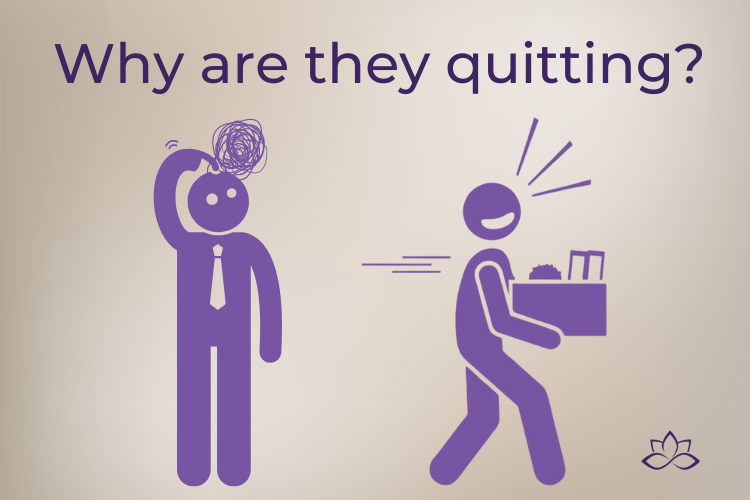When I meet with leaders of organizations experiencing high turnover, we don’t discuss hiring, onboarding, or even job satisfaction. Instead, we talk about communication. While communication is a soft skill, it is an essential one. Did you know according to a Randstadt US survey that managers spend an average of 6.5 hours a week and other employees spend an average of 2.5 hours each week managing conflicts? With all that time spent, we are ineffective in resolving conflict.
89% of employees let their conflicts with coworkers escalate, while 12% quit their job, another 10% of workers avoid going to meetings, and 9% don’t come to work for multiple days.
From administrative staff, all the way to the executive team, miscommunications and the conflicts they cause have a huge impact.
Fresh out of college, I got a job working in customer service for a large insurance company. From the first week, I noticed the staff seemed a little on edge. The job itself, while simple, was challenging. Our department took complaint calls from providers who had claims denied, aka angry people. When you tried to keep your call numbers up and call times short, management didn’t provide adequate support. People were mostly unhappy with the workload and pressure. Not surprisingly, this stressful work environment had small issues escalate.
“Can you please put in your headphones? It is hard to concentrate with the music.”
Then it escalated… “Seriously, I don’t like your music. Turn it off now.”
“Did you burn popcorn again, it stinks.”
Then it escalated… Do you not care? I feel like I am going to puke when I smell that.
“Hey, remember how I told you. You have to give those calls to the claims department.”
Then it escalated…”You are dragging down our call numbers. You are making me look bad.”
Long story short, after 5 short months working there, I quit. Individual team members gossiping about each other. The Supervisor telling us to grow up when small skirmishes became full-out personal attacks. Being told to just do our job versus giving us helpful solutions when the pressure of the job felt like too much.
My story might sound like a very severe example of workplace conflict. It isn’t though. Consider these additional stats:
– 60-80% of organizational difficulties stem from strained relationships among employees.
– 43% of non-managers reported the origin of the conflict as being “personality clashes or warring egos”.
Organizations lose great talent every day, but what if they didn’t have to? The most effective solution, statistically speaking, is to provide training. Teaching others how to be effective communicators in conflict, whether they are the kind of people who step right in, avoid it like the plague, or try to smooth it over is actually totally possible.
Curious to know more? Let’s hop on a call and discuss. Book a free 30 min call.

